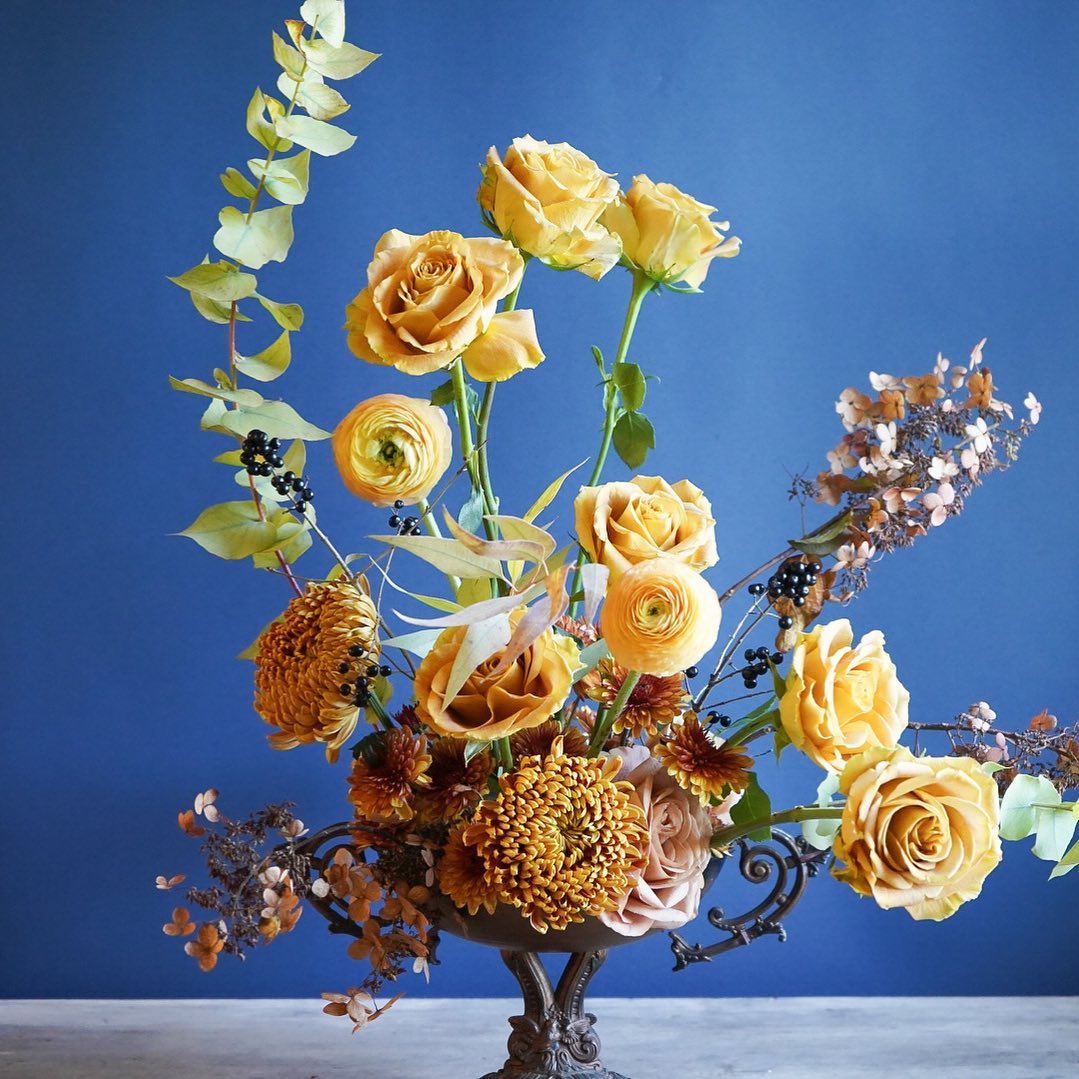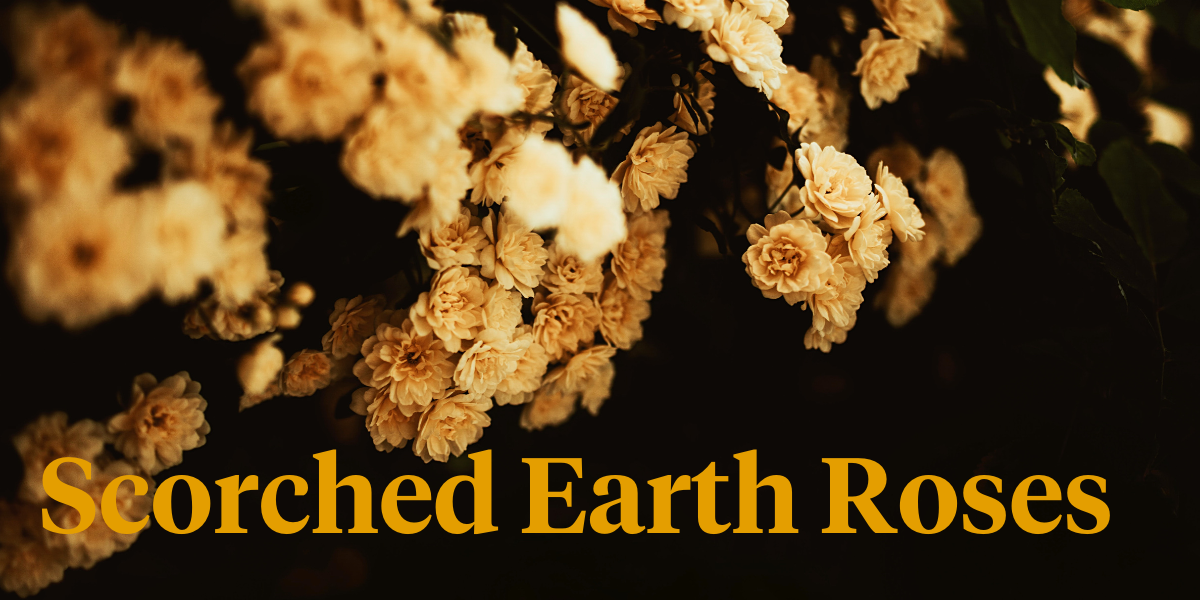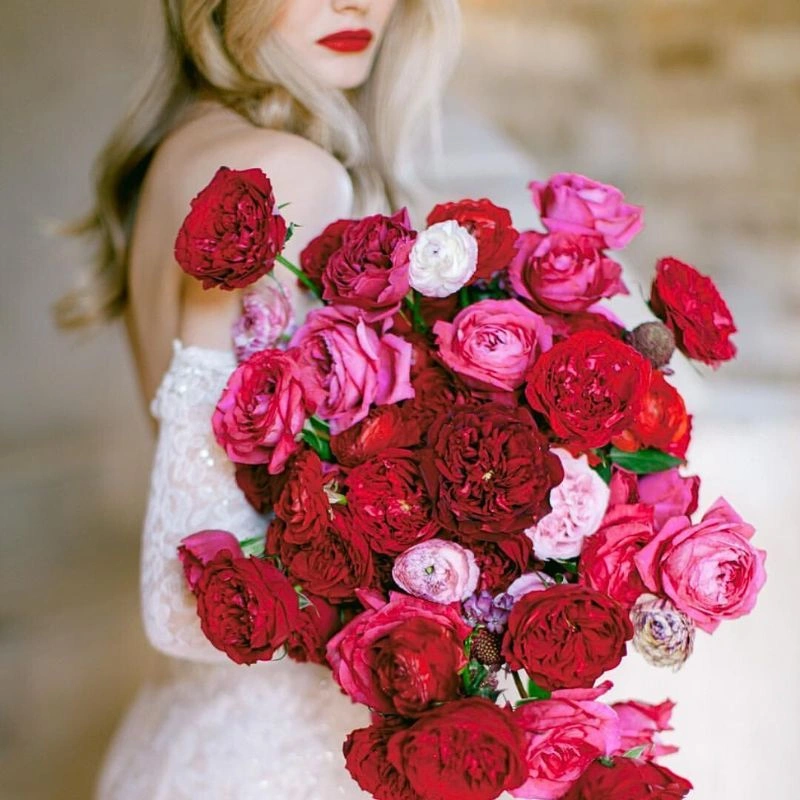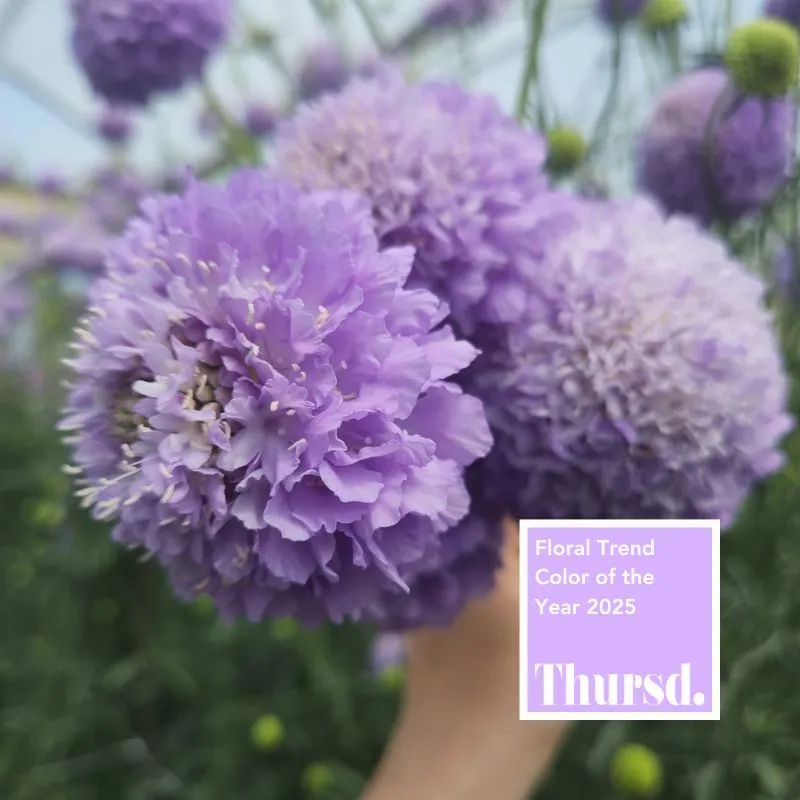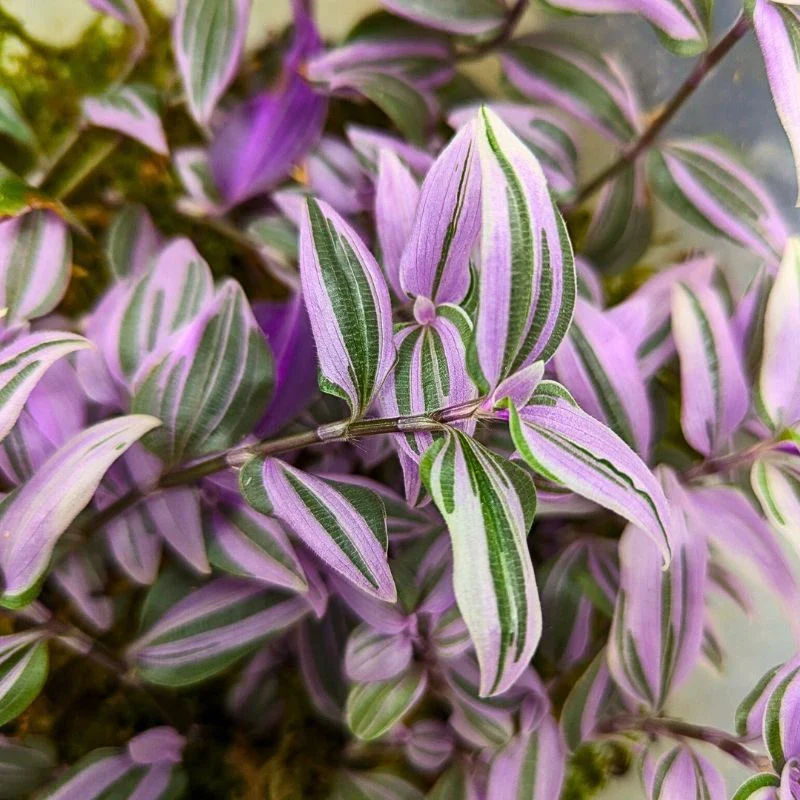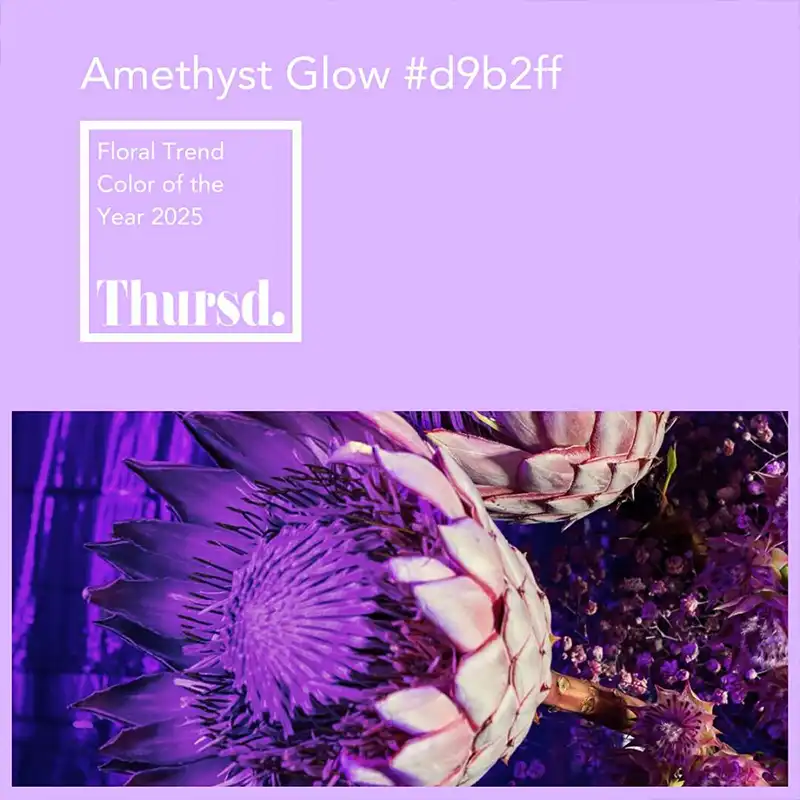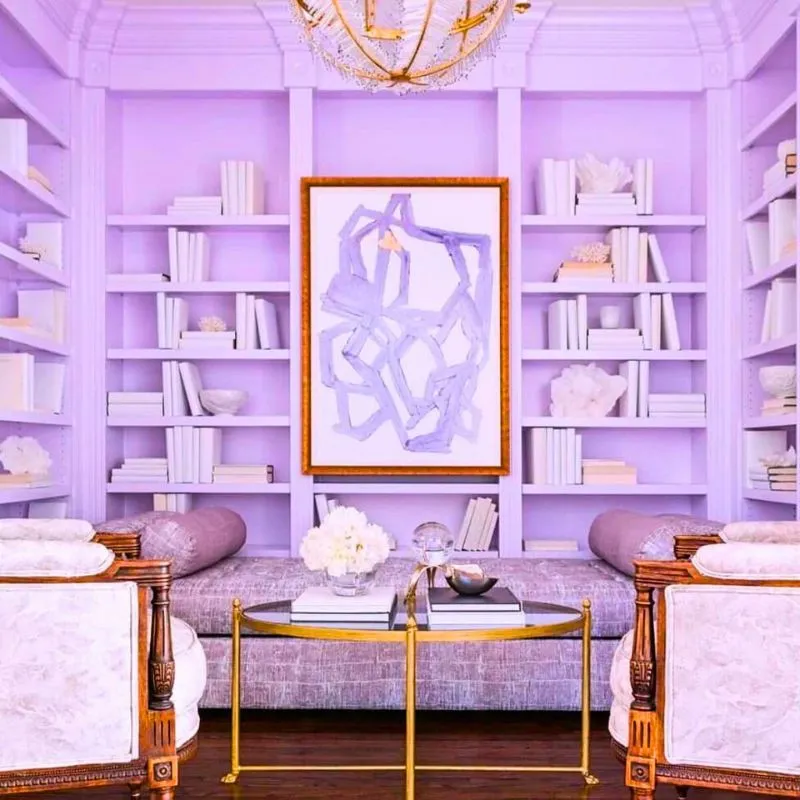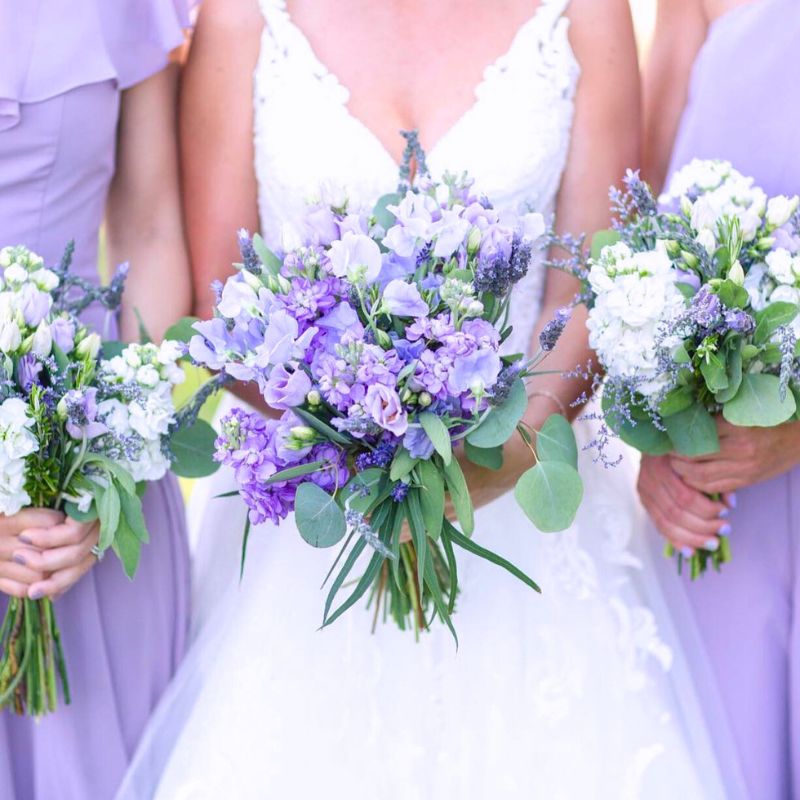As Thursd's color of the year 2021, the Scorched Earth color palette is one that will fuel your creativity. It moves from a bright orange towards a vibrant golden yellow and a slightly broken yellow where it lingers hopefully and results in a gloomy yellow-brown-beige. Soft greens, blues, and even whites accompany the palette to freshen up the designs. It's a dramatic name for a color that represents an important topic: climate change. The importance of sustainability in the flower industry is a hot topic that can't draw enough attention.
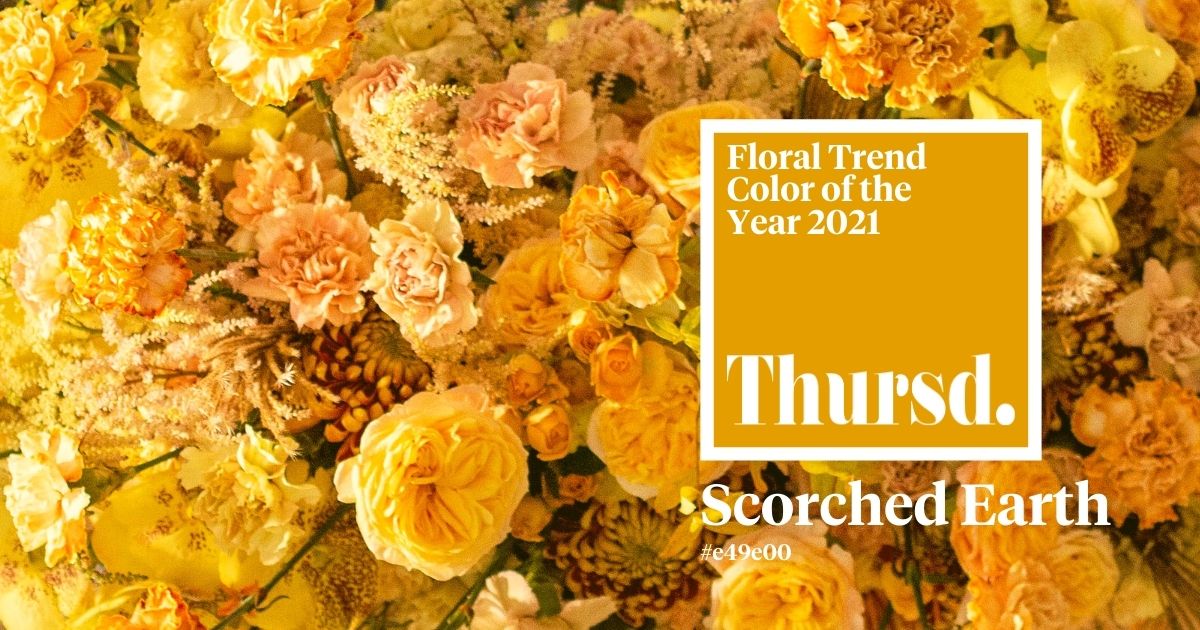
Varieties That Fall Right Into the Scorched Earth Color Palette
Today we are sharing a few beautiful roses with you that not only fit right into the Scorched Earth color palette but are also bred with a more sustainable world in mind.
Golden Mustard
Golden Mustard is a beautiful yellow/gold garden rose with hues of light brown toward the center. Unique in the coloring of the petals that resemble the color of mustard seeds. This rose is very much in demand for wedding work and everyday arrangements because of its special color and great vase life. Opens about 30% and holds extremely well in a bridal bouquet. Golden Mustard is a variety from Interplant Roses, a breeder that strives to have as little impact on the environment as possible. As well as a fully enclosed hydroponics system with no discharge to the environment, and the widely acclaimed wetland which deals with reverse osmosis waste, at the same time providing a home to a wide variety of birdlife, the company has now added a grid-tied solar energy system which at its peak can provide almost 100% of its power requirement.
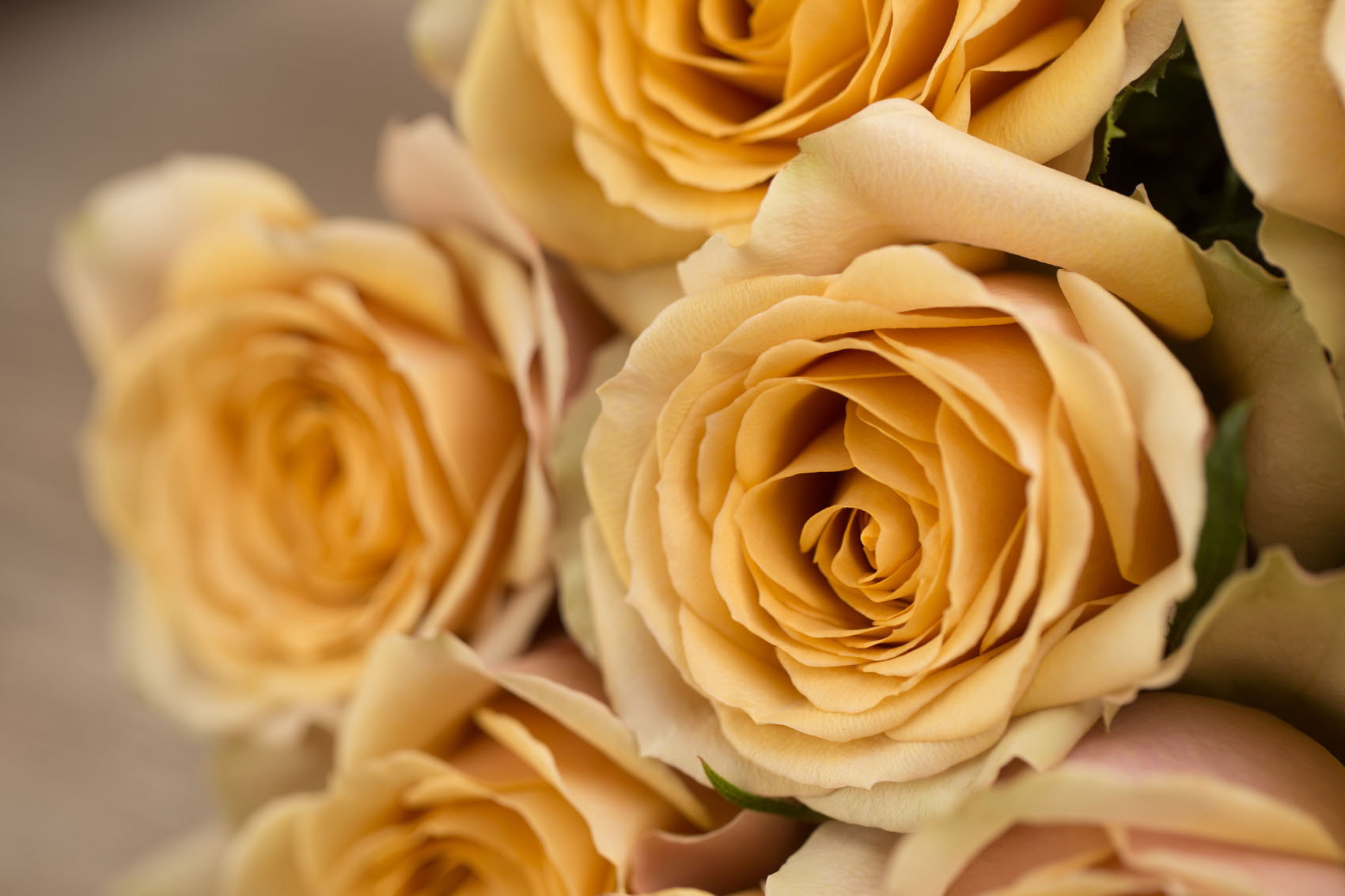
Combo
Combo is a rose that opens beautifully and consistently. This is a striking variety that is fascinating in its color range - it's rusty, it's muddy, copper, golden, and brown all wrapped into one. It is a classic choice and will work perfectly in any floral design, from bridesmaid bouquets and corsage to centerpieces and arches. Combo looks great in earthy and nude color palettes but will also definitely stand out on its own.
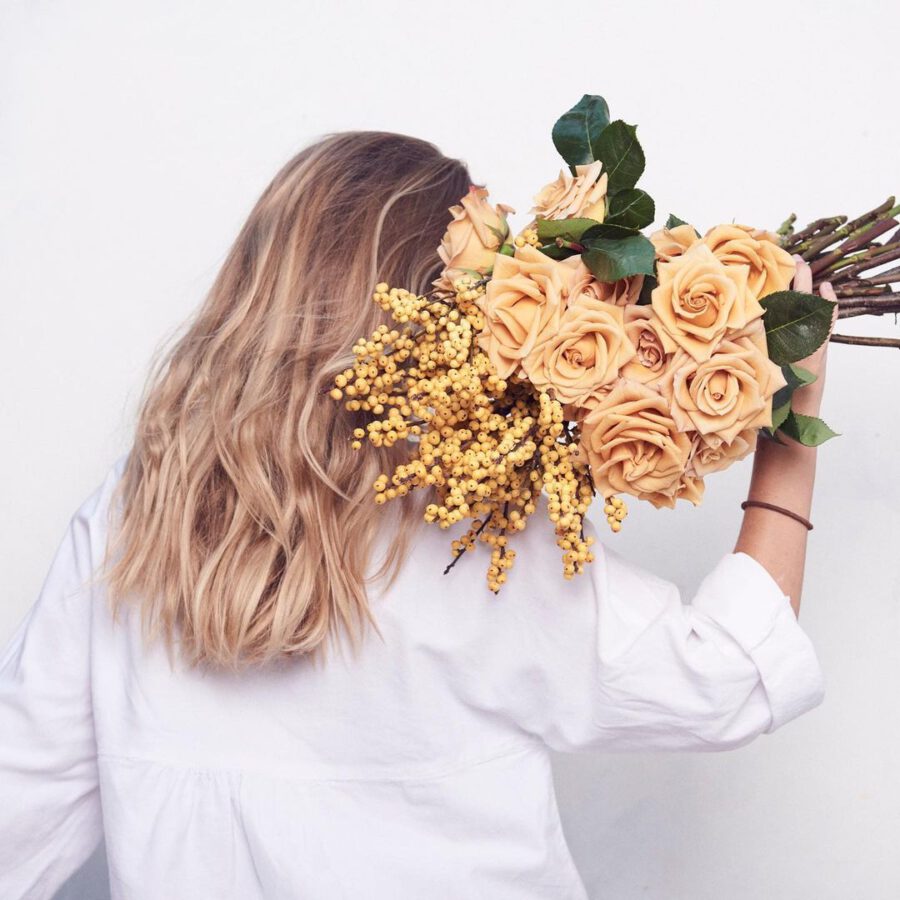
Westminster Abbey
Named after Britain's coronation church, the Westminster Abbey rose shares the same color as the building's exterior. The brown-beige color slowly changes to grey as it continues to bloom. This is one of the most exclusive roses of our time. A favorite amongst brides for its large blooms and pleasing fragrance. Westminster Abbey is a spectacular addition to all kinds of flower arrangements. One of the growers of this striking variety is Vip Roses. 100% of Vip Roses’ production occurs between April and November, meaning they offer a truly seasonal product. By shifting their focus to their topped roses and choosing not to grow during the coldest months, Vip Roses significantly reduces their energy usage. These conscious efforts result in an extremely small ecological footprint. Sustainability has become a passion of Vip Roses’ and their results are certainly worthy of pride.
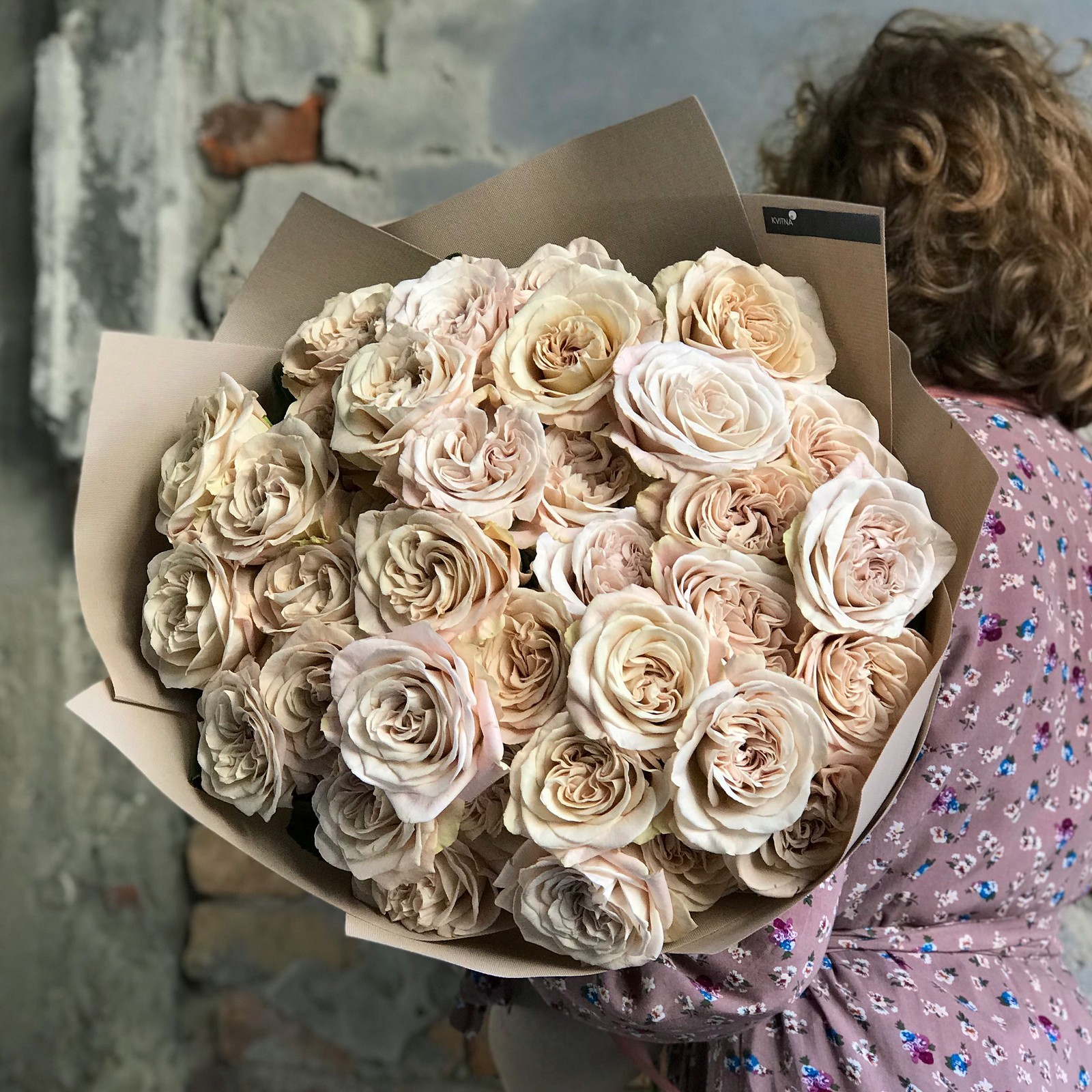
Hot Rock
Hot Rock, a name that couldn't have fit the Scorched Earth color palette any better. This rose comes in a stunning chocolate bicolor. When it's fully open, you can see that the reddish-brown petals have a beautiful golden-yellow hue at the bottom and towards the center. Sometimes you will even see some golden speckles on top of these chocolate blooms.
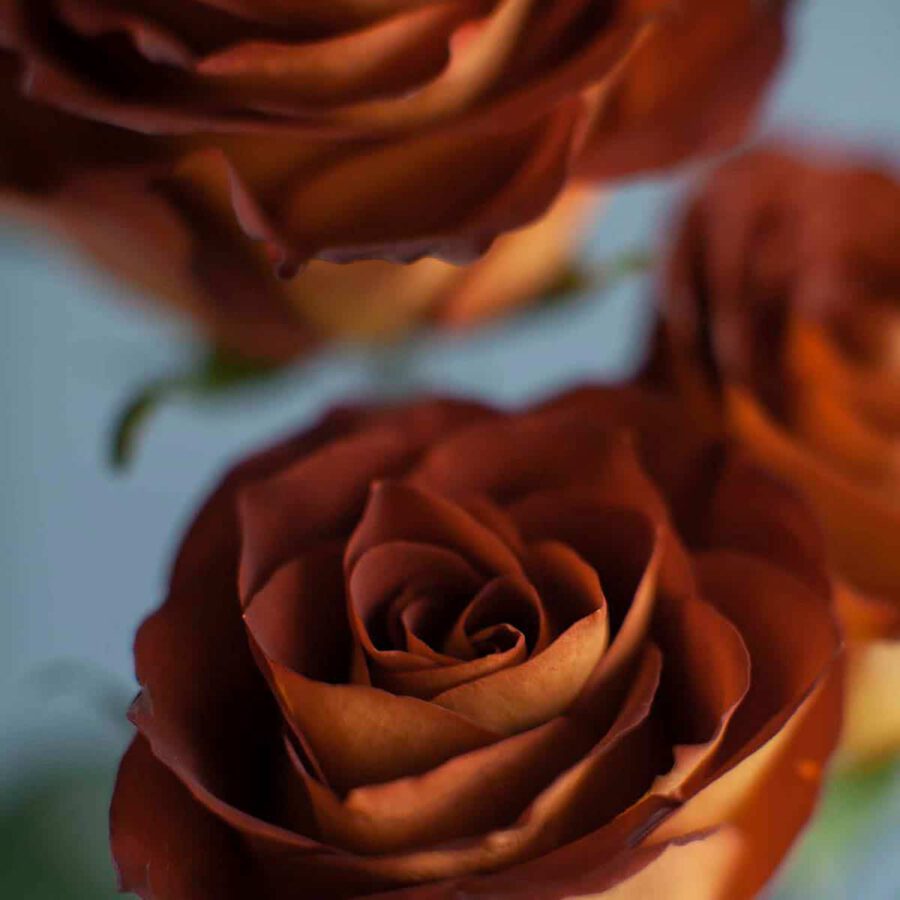
Café Latte
Café Latte is a very special rose with a unique ethereal color, opening fully with a sweet vanilla scent. This variety is famous for its unusual antique petals and copper bronze color with a very slight pink undertone. A stunning rose for any occasion and a huge favorite for weddings. Cafe Latte was exclusively bred at the Tambuzi rose farm in Kenya for its beauty and fragrance and has won the hearts of many florists around the world.
Tambuzi is the world’s first rose farm to achieve Carbon Neutral Gold Standard Status and the first Kenyan organization to sign the UN Climate Neutral Now Initiative pledge. Besides their environmental efforts in solar energy, the use of as much biological control as possible, wetlands, and a 6-hectare dam which is fed only when the local Burguret River is in spate in the rainy season, they also invest back in the community around them.
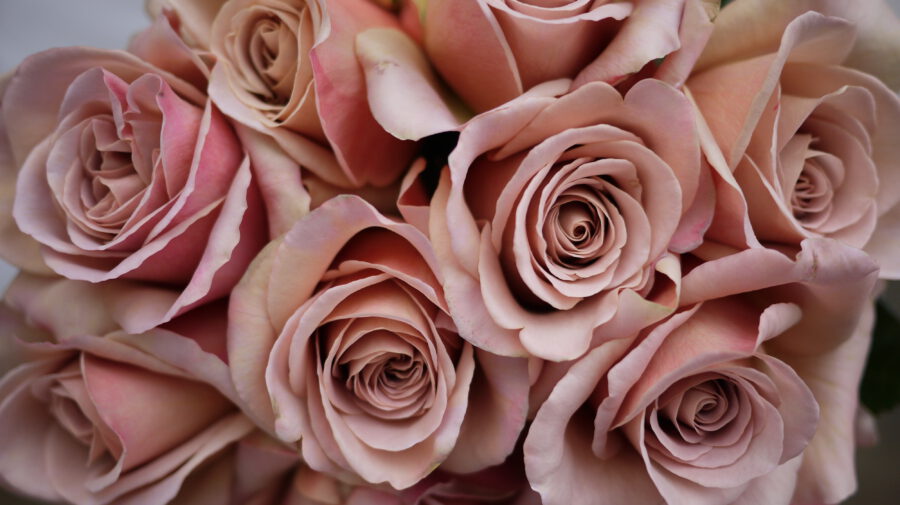
Spoiler
Another variety grown by Vip Roses is Spoiler. Spoiler just can't keep its own secret, from early on the beholder can see that this gloriously golden rose softens in tone to a soft beige. Its wonderfully filled bloom remains strong and full until the end and can be enjoyed at length. With mustard tones making their mark on the fashion world, Spoiler is right on trend and is sure to be a hit in the most up-to-date interiors. Knowing that 80% of bugs are good bugs, Vip Roses has opted against using harsh chemicals to treat destructive insects. Instead, they employ a safe, natural form of insecticide. An in-house scout is responsible for maintaining the balance of good insects to combat any harmful insects. This organic method is referred to as “insects against insects”. This approach also ensures the health of the soil in which the roses are grown. A healthier soil undoubtedly produces a healthier, heartier rose which can thus be enjoyed longer.
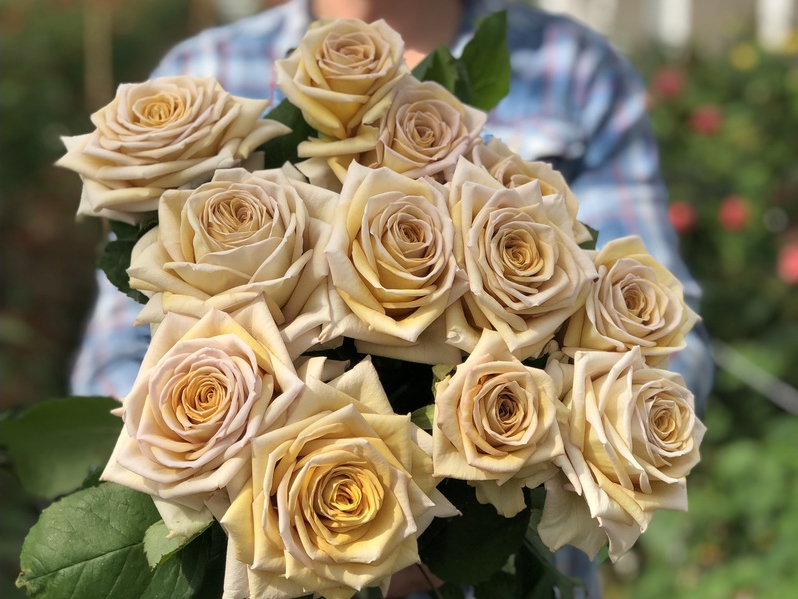
Camel
Camel is a mesmerizing nude rose with warm brown tones. The coloring can be described as buff with honey and blush undertones, and its brown, neutral hues make it work in many different color palettes. This variety fits perfectly into the Scorched Earth color palette but also pairs beautifully with Toffee roses, Golden Mustard roses, white flowers, dried products and so much more.
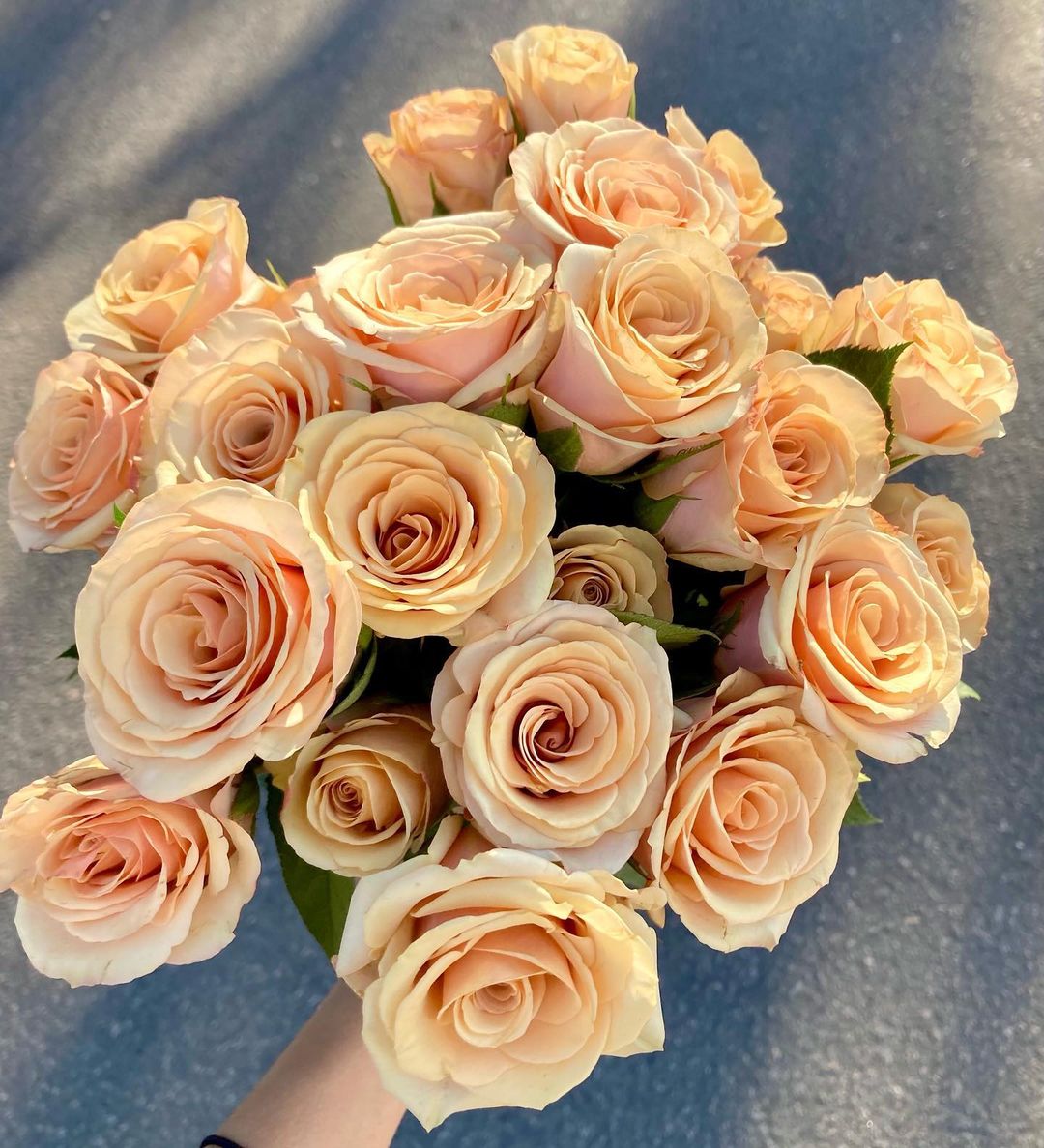
Golden Vuvuzela
Golden Vuvuzela is a newer variety with the charm of an old English garden rose. It is a mutation of the well-known Vuvuzela rose and has a beautiful gold-colored heart with pinkish outer petals. This rose holds well in an open form, is great to work with all kinds of bouquets and arrangements, and has plenty of vase life so it can be enjoyed to the fullest.
Golden Vuvuzela was bred by De Ruiter, a company that expressly looks at the current standards with regard to the environment and corporate social responsibility. Their emphasis is on People and Planet. De Ruiter continuously invests in its people through expanding knowledge, training, and research, and making them aware of how De Ruiter wants to do business in a socially responsible manner.
The environmental aspects of breeding and selection on location are continuously evaluated in order to use more biological and less harmful or chemical pesticides. The supply chain partners are involved in this process and it is pointed out that the newly developed varieties are more disease resistant and as a result require fewer pesticides or water, which reduces the ‘carbon footprint’ and allows the grower to produce in a more sustainable way
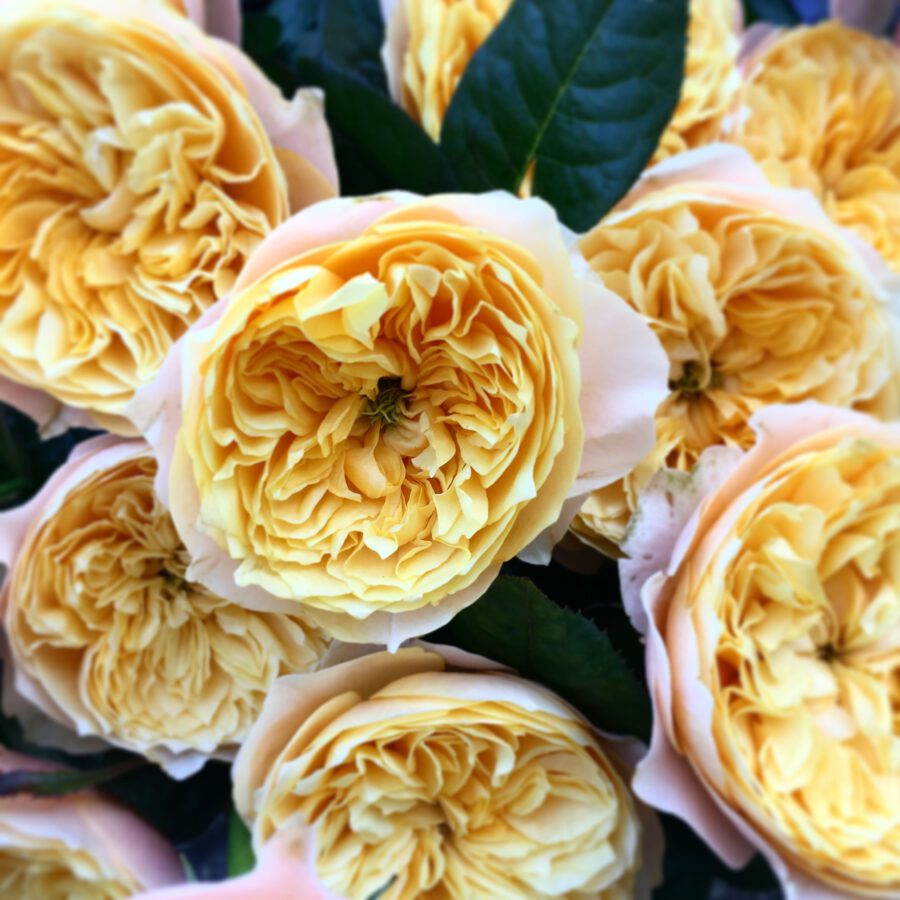
Green Island Samoa
Rosen Kretz calls the Green Island Samoa ‘One of their many special roses’. It is true, Rosen Kretz has an established reputation for producing top-quality roses and spray roses, but the plume on top of this orange one is really exceptionally cute. When breeder Rosen Tantau looks at the rose, they see “A strong, distinctive green island surrounded by a red-yellow sea of flowers.” Green Island Samoa comes in sizes varying from 40-70cms. The flowers have to be cut wide open for the best visual effect. Hans Jürgen Evers from Rosen Tantau was one of the first who selected and bred specialized cut rose varieties to be cultivated outdoors worldwide, and the Green Samoa Island grower, Rosen Kretz, continuously innovates with sustainable energy supply for their greenhouses, organic plant protection, and ecological packaging.
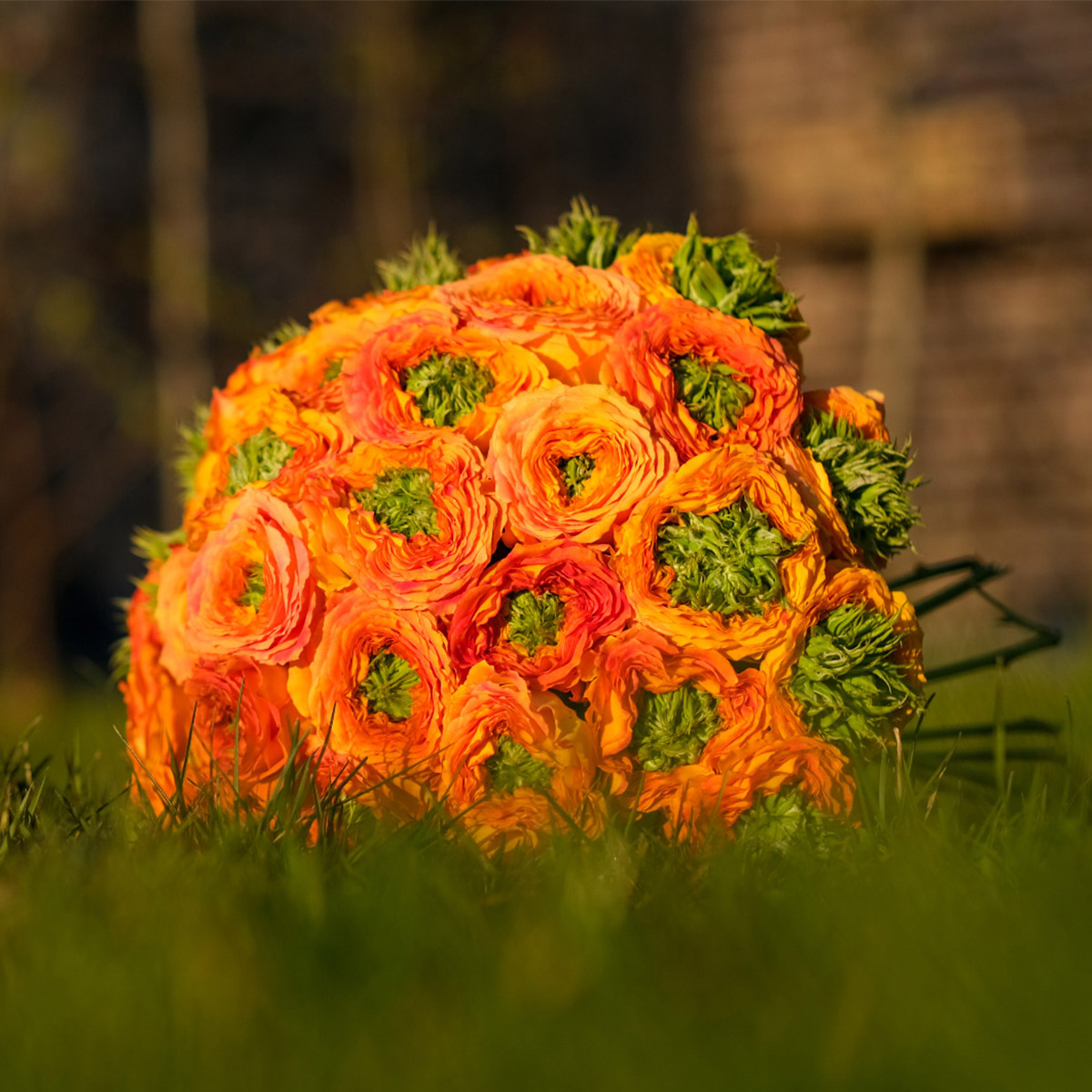
Heart of Gold
Another variety that fits great into the Scorched Earth color palette, is Heart of G As the name suggests, this rose has a deep yellow color with brown tones that give it a golden hue. The golden-brown Heart of Gold is a fairly new introduction with a very pleasing vase life of 10-12 days. Heart of Gold is also a variety bred by Interplant Roses, a breeder that promotes sustainable entrepreneurship by investing in wetlands. Wetlands are among the most productive ecosystems in the world, comparable to rain forests and coral reefs. They are also considered the most biologically diverse of all ecosystems, serving as home to a wide range of plant and animal life. Wetlands benefit by protecting and improving water quality, providing fish and wildlife habitats, storing floodwaters, and maintaining surface water flow during dry periods. These valuable functions are the result of the unique natural characteristics of wetlands.
